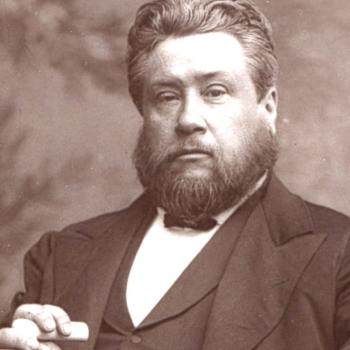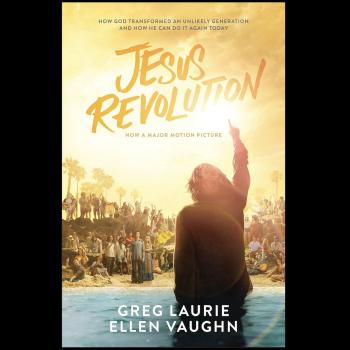Life In The Cultlane responded in my comments section to my post What is an evangelical? I thought I would include the post in its entirety here and comment as we go.
Hi! I seem to have sparked quite some discussion.For context – I’m a New Zealander, I consider myself Christian, I grew up from 1971-1989 in a church that I would consider Pentecostal (‘Indigenous Pentecostal’, ie, NZ homegrown) and inspired directly by Smith Wigglesworth. This church very definitely suffered from ‘paranoia and elitism’ – we believed we were the only Christians left in the world and that the world was going to hell, as most especially any other so-called Christians.
My question here is – did you believe that those who weren’t true Christians were going to hell or that those not in a church like yours? There is of course all the difference in the world between these two views. It sounds like your impression was clearly the second, but unfortunately it can sometimes be hard to distinguish between the two and it is possible to get the opposite impression from what is intended.
In 1989 my family finally left this church and became involved with a movement called ‘Rise Up Together New Zealand’ which I guess you could call Pentecostal in spirituality, but Evangelical in doctrine. Evangelical/Charismatic. I was then involved with the Vineyard Church NZ which I am still connected with, but now (since 2003) find my closest home at the moment in a Baptist church which is loosely affiliated with Brian McLaren’s ‘Emergent’ network. (Which is not in itself a denomination but a sort of informal network across denominations).
I find the definitions of words to be a source of quite a lot of confusion. I use the word ‘Evangelical’ in the sociological sense to mean ‘the churches aligned with the Evangelical Movement, ie, the cluster of Western Protestant churches which broke away from the Fundamentalist movement in the early 20th century’. As opposed to, eg, the Catholic church, the Orthodox church, the ‘Anabaptist’ churches (Amish, Mennonite, Quaker), or the ‘mainline Protestant’ churches (such as Reformed, Anglican, Presbyterian, Methodist) which tend to take a similar political line and cluster together. I am aware that there are evangelical wings within the mainline denominations, but for the most part when I say ‘evangelical’ I refer to the Baptists and the various newer Pentecostal/Charismatic denominations such as Elim, Assembly of God, etc.
On the whole, generally the ‘evangelical’ churches tend toward politics that could be described as ‘right-wing’ or ‘conservative’, and the ‘mainline’ churches toward ‘left-wing’ or ‘liberal’ politics. I am also aware that the meaning of these labels has drifted over time and is confusingly defined even at present, but most people have at least a similar understanding of these terms.
‘Post-evangelical’ is a term coined by Dave Tomlinson in his 1995 book ‘The Post-Evangelical’, and describes a church movement which has sprung out of the Evangelical movement and shares many, but not all, of its values. This is the sub-movement to which I consider I belong, and which is roughly the same / overlaps loosely with the movement self-described as ‘the emerging church’ and the ‘alternative worship’ movement (which are not quite the same things either, but close enough for now).
So…
So perhaps post-evangelicals are those who still believe in God but are feeling rather hopeless about the state of the world today, and have lost the faith in the onward march of the gospel felt by evangelicals?
Not quite. As I explained, by the word ‘post-evangelical’ I don’t mean that I feel hopeless about the progress of the Gospel. But I feel that the particular ‘gospel’ which, by and large, is promoted by the movement calling itself the ‘evangelical church’ is not in fact the Gospel of Jesus. And the particular politics which the self-described ‘evangelical church’ has, in the latter half of the 20th century, associated itself with, tends to value things that I don’t believe Jesus valued.
My politics tends toward the ‘seamless garment’ or ‘consistent ethic of life’: which is to say, anti-handgun (eep, I’m no conservative!), anti-abortion (eep, I’m no liberal!), anti-nuclear-weapons, anti-war… pro restorative justice, pro redistribution of wealth to the poor.
On sexuality, I find myself torn. On the one hand, it seems the Bible (if you ignore, say, the bits about how many wives and concubines David or Solomon had while still being called godly) is fairly consistent about sex being about a lifelong commitment between a man and a woman. I don’t have a problem with that. On the other hand, I’m not really a fan of using government power backed by violence to force people into ‘moral’ sexual behaviour that they would otherwise not want to do. Hence my angst about things like the Civil Union Bill.
There is, I’m ashamed to admit, a strong streak of authoritarianism running through the Evangelical church movement, and especially the Pentecostal subsector. The ‘I’m the Pastor because I’m annointed of God and you will do as I say’ model. I think this is a bad thing and would favour something more along Quaker lines – I believe the ‘priesthood of all believers’ means that God speaks to individuals… *lots* of individuals… not necessarily to lone, powerful, commanding leader-figures (or at least, not *more* to them than to the poor or the lame, etc). I don’t disbelieve in the concept of absolute truth, but I am skeptical given sinful human nature about the ability of a few ‘strong’ individuals to find it for themselves and then impose it on others – I have seen from experience how strongly authoritarian churches can go bad. So I tend toward thinking democracy is pretty much the best political system
“If the moral foundation of Western law and civilisation falls apart – well, that’s better than trying to hold it together by force. Sometimes there’s nothing you can do and you just have to let things die.”
As to this… bear in mind, the Gospel of Jesus as I understand it is a story of death and resurrection. You can’t have the Empty Tomb without Golgotha. There is such a thing as trying to hold back the wind – whether it be birth or death, there comes a point where the cost of trying to impose a minority’s viewpoint – no matter how technically ‘right’ that may be – on an unwilling people becomes neither Christian nor human.
Do we believe that our God raises the dead? Then let us be prepared to let the dream of ‘Christendom’ – a society where the laws of Christ are enforced with the weapons and violence of man – die. If the only way to save ‘our Christian heritage’ is though dressing up and acting like a Nuremberg Rally… that kind of Christian heritage we don’t need.
Jesus said, ‘They will see your good works and glorify your Father who is in heaven.’ Not ‘they will hear your good words and obey.’ We don’t need to try to make people be moral. We want to act in such a way that they see us and want what we’ve got.
What is it that we have – other than the need to have people listen to us and give us unquestioned obedience? What would our gospel be if nobody ever listened to us but it was only our own actions, gifted to the world in secret?
When we look inside our hearts and our history and can answer that positively, then we will truly be Evangelicals in all senses of the word.
Meh. That link didn’t work. Here it is – take a look for yourself and see what you think this looks like. Why are liberals afraid that Christians are closet Nazis? http://www.scoop.co.nz/mason/stories/HL0408/S00251.htm
I guess the most important point at issue is how much should we try and use the law to impose Christian values on a pagan society. Christians will differ on this- even quite conservative ones might want to leave well alone as far as the law is concened.
So it seems all in all that provided it is understood properly ‘evangelical’ remains a word I am happy to identify with and so, thanks to Nate, the title will remain for the time being at least in this blog.
As to emergent church, I guess that is a topic for another day. Suffice it to say that I share in a number of the sentiments- especially the criticism of much of the organised church. I am not convinced that the wholesale embracing of post-modern ideals is helpful. Christians need to adapt in their styles, yes, but our primary source for how to do church should always be the bible and not the modern culture.












